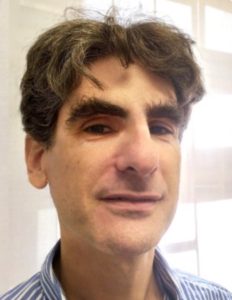Medical Device Success
The Medical Device Success Podcast and Videocast is a combination of interviews with Subject Matter Experts (SMEs) and MedTech leaders along with some solo podcasts aimed at improving the ability of the audience to better understand and compete in today’s rapidly changing healthcare ecosystem. We seek out SMEs in areas that can assist MedTech companies in:
• Marketing strategies, tactics and technologies
• Sales strategies, tactics and technologies
• The future of MedTech – technology trends and implementation
• Health research & economics
• Provider issues (hospital systems, ambulatory surgical care, etc.)
In our “In the C-Suite” series we like to get leadership perspectives from MedTech leaders.
Episode 88 – Replay of Driving Sales with Physician Micro-Marketing in MedTech
In 2021, Episode 55 was the most downloaded podcast of the year. It was published July 18. Because podcast listeners tend to scroll only so far back to find material to listen to, I felt this episode was very worthy of a replay. Most of my podcasts are evergreen. One difference is that today in the show notes I do have an unlisted link to the RAW YouTube video of this episode. This is great if you want to see the slides. For newer listeners, enjoy! For veteran listeners of the podcast that have already heard this or watched the video….you have the week off. Or, you may want to listen again.
Do you know which digital platform is most effective in targeting physicians? Is it LinkedIn, Facebook, Instagram, Twitter or TikTok? Listen to the podcast and in a few minutes, you will know the answer. The pandemic caused a tremendous amount of rethinking about how MedTech gains the interest and attention of prospects. Physician micro-marketing is a solution. Our guest to help us with this fascinating and surprising subject is Scott Alexander, CEO of Jairus Physician Micro-Marketing. Scott also shares a case study of where micro-marketing and micro targeting helps a company ramp initial sales and pivot to a what they thought was a secondary market that turns out to be their primary market. All this done rapidly and economically when compared to traditional marketing and sales.
Now Go Win Your Week!
Scott Alexander LinkedIn Link
Jairus Physician Micro-Marketing website link
YouTube Video Link
Ted Newill’s LinkedIn Profile link
Medical Device Success website link
MedTech Leaders Community link
Link to Ted’s contact page
Episode 87 – Narrow Podcasting for MedTech Marketing and Sales
What kind of podcast is NOT concerned with the number of listeners? A Narrow Podcast. It is concerned with who the listeners are. In this episode, I explain the concept of Narrow Podcasting and how it could be an important new type of content in support of Marketing and Sales. I do use slides. If you want a copy of the slides let me know. But listeners should understand very clearly. We discuss:
- how it is different than podcasting in general
- why podcasting should be considered as effective content
- difference between video and podcasting
- economy of implementation
- an example of applying Narrow Podcasting to a healthcare specialty
- and more..
Enjoy!
Now Go Win Your Week!!
Toby Goodman’s website link
Narrow Podcasting by Toby Goodman link
Ted Newill’s LinkedIn Profile link
More Medical Device Success podcasts link
Medical Device Success website link
MedTech Leaders Community link
Link to Ted’s contact page
Episode 86 – How an AI Design Team Helps Medtech with Moshe Safran, PhD
 I will start with a Question – Does a MedTech product have to have AI as a direct component to be considered enhanced by AI? The answer is “No”. AI can contribute to the success of a product or service in many ways.
I will start with a Question – Does a MedTech product have to have AI as a direct component to be considered enhanced by AI? The answer is “No”. AI can contribute to the success of a product or service in many ways.
Today we continue with the subject of Artificial Intelligence. What is different is that we approach the subject from the view of a company that helps MedTech companies create AI based software that assist their clients products in one of three ways. Our guest today is Moshe Safran, PhD, CEO of RSIP Vision USA. Moshe and his team have been helping companies for years with their AI related challenges. By the end of this podcast, we should have you thinking outside the box in terms of how AI works with and can support products.
Links to Moshe and RSIP Vision are below in the show notes.
Thanks for listening in today. If you like this podcast, please refer it to a friend simply by using the share link on your podcast player. If you want to learn more about the MedTech Leaders’ community, go to medtechleaders.net. By the way, some of you participated in the offer to join the community in February and March. This has resulted in the promised matched contribution to HERhealthEQ.org. Thank you very much!! The money will go to help women in the third world get access to critical medical instrumentation.
Now Go Win Your Week!
Moshe Safran, PhD, LinkedIn Profile link
RSIP Vision website link
Ted Newill’s LinkedIn Profile link
More Medical Device Success podcasts link
Medical Device Success website link
MedTech Leaders Community link
Link to Ted’s contact page
Episode 85 – Bringing AI into Healthcare Delivery with Ron Li, MD, Stanford University
 Some of you that are old enough will remember when doctors, clinics and hospitals were complaining about implementing electronic medical records which we now call EMR. EMR then advanced and became Electronic Health records or EHR. EHR is actually more powerful than EMR. EHR is the term most of us use today. Then, if your product created a report or an image, your company was busy creating links to the electronic records so the report or image could be stored electronically. Now we take all much of this for granted.
Some of you that are old enough will remember when doctors, clinics and hospitals were complaining about implementing electronic medical records which we now call EMR. EMR then advanced and became Electronic Health records or EHR. EHR is actually more powerful than EMR. EHR is the term most of us use today. Then, if your product created a report or an image, your company was busy creating links to the electronic records so the report or image could be stored electronically. Now we take all much of this for granted.
Our guest today says that even though EHRs were not intentionally designed to aid clinical informatics “without EHR we would have no AI in healthcare.”
Today we dive into the mind of a clinician and researcher who is very involved in clinicial informatics and artificial intelligence. Our guest today is Ron Li, MD. Ron is a Clinical Assistant Professor Department of Medical and Hospital Medicine, Stanford University and he is the Medical Informatics Director for Digital Health and Artificial Intelligence Clinical Integration at Stanford Health Care. We learn about how a health care system is investing in efforts to design and implement programs and workflows that incorporate clinical informatics and AI to improve outcomes and reduce costs. And, we talk about how MedTech fits in.
This is our 6th episode related to AI in MedTech. We have at least one more. If you have listened to most of these, you will have a good idea as to what is going on in the minds of clinicians, researchers, companies and providers. This knowledge can help guide you in your career and/or your company’s strategies related to informatics, deep learning and its products. Do your products need an AI component to add more value or do they need to fit into a work flow that is being enhanced by AI?
Thanks for listening in today. If you like this podcast, please refer it to a friend simply by using the share link on your podcast player. If you want to learn more about the MedTech Leaders community, go to MedTechLeaders.net.
Now Go Win Your Week!!
Ron’s LinkedIn profile link
Books Ron recommends:
- The Fifth Discipline by Peter M. Senge link
- Cloud Computing: Concepts, Technology & Architecture (The Pearson Service Technology Series from Thomas Erl) by Thomas Erl, Ricardo Puttini, Zaigham Mahmood link
- Prediction Machines: The Simple Economics of Artificial Intelligence by Ajay Agrawal, Joshua Gans, Avi Goldfarb link
- Systems Thinking: Managing Chaos and Complexity: A Platform for Designing Business Architecture by Jamshid Gharajedaghi link
Ted Newill’s LinkedIn Profile link
More Medical Device Success podcasts link
Medical Device Success website link
MedTech Leaders Community link
Link to Ted’s contact page
Episode 84 – In the AI C-Suite with David Golan, CTO and Co-Founder of Viz.ai
 Then the FDA team had an “Aha!” moment! At first, the meeting didn’t start off that well. The FDA heard the term “artificial intelligence” and were immediately skeptical. Then the Viz.ai team hit the pause button and said this was about speed to treatment for stroke, not necessarily doing a better job interpreting images. “Aha!!” The rest is history. What if your company could develop a product that reduces hospital stays by 2.5 days, demonstrates a 37% improvement at discharge from the hospital and a 40% improvement 90 days after discharge? And, what if this product resulted in a 38% improvement in speed to treatment for a critical condition? This life altering technology is offered by Viz.ai. In today’s episode we Zoom travel to Israel to visit with David Golan, CTO and Co-Founder of Viz.ai. This is our fifth episode related to artificial intelligence in MedTech. Not only is Viz.ai an amazing life altering technology, it is also a great story. While artificial intelligence plays an important role in their technology, David explains that it is only part of the total product.
Then the FDA team had an “Aha!” moment! At first, the meeting didn’t start off that well. The FDA heard the term “artificial intelligence” and were immediately skeptical. Then the Viz.ai team hit the pause button and said this was about speed to treatment for stroke, not necessarily doing a better job interpreting images. “Aha!!” The rest is history. What if your company could develop a product that reduces hospital stays by 2.5 days, demonstrates a 37% improvement at discharge from the hospital and a 40% improvement 90 days after discharge? And, what if this product resulted in a 38% improvement in speed to treatment for a critical condition? This life altering technology is offered by Viz.ai. In today’s episode we Zoom travel to Israel to visit with David Golan, CTO and Co-Founder of Viz.ai. This is our fifth episode related to artificial intelligence in MedTech. Not only is Viz.ai an amazing life altering technology, it is also a great story. While artificial intelligence plays an important role in their technology, David explains that it is only part of the total product.
Don’t forget that in the months of February and March all new member dues for the MedTech Leaders Community are being contributed to HERhealthEQ.org. Furthermore, I am matching ten of these contributions. Membership costs about the same amount as 4 cups of artisanal coffee. Learn more at medtechleaders.net.
Check the notes below for links to the David’s linkedin profile and Viz.ai website. There will also be links to me in the event you have questions or feedback. And, if you like this podcast, please share it with a friend using the share link in your podcast player.
Now Go Win Your Week!!
David Golan, PhD, LinkedIn link
Viz.ai website link https://www.viz.ai
Ted Newill’s LinkedIn Profile link
More Medical Device Success podcasts link
Medical Device Success website link
MedTech Leaders Community link
Link to Ted’s contact page
Episode 83 – AI in Radiology and MedTech, a Researcher and Clinician’s Perspective with Paul Yi, MD
In 2016, Geoffrey Hinton, PhD, famous for his work on artificial neural networks said, “It is quite obvious that we should stop training radiologists”. Well…it just so happens that we are still training radiologists. They are as important as ever.
Today we get back to Artificial Intelligence in MedTech. To help us look at AI in radiology and MedTech is Paul Yi, MD, Director, University of Maryland Medical Intelligent Imaging Center. It is also known as UM2ii which is pronounced “you”. In today’s episode you will learn why AI is not going to replace radiologists and doctors in general, where AI is helping doctors right now, where it can contribute in the future and how MedTech can contribute and learn. As usual, this is an information packed episode that will position you to better understand AI and how it can contribute to your future and your company’s future.
Be sure to look at the show notes for links that Paul recommends. And, if you like this podcast simply share it with a friend via the share link on your podcast player.
A little housekeeping. In March as in February, all new membership dues for the MedTech Leaders community are going to be contributed to HERhealthEQ.org. This is an organization that helps women in the third world with health equity by putting much needed medical equipment in a position to be of assistance in their health care. In fact, I will match the dues of the next 10 people that join. You can learn more about the community at medtechleaders.net. It costs only about 4 cups of artisanal coffee annually.
More housekeeping. We have rounded out one team for the Ukrainian MedTech Assistance Group. I would like to create one more team. No one knows when this terrible war will be over. But we want to be ready to assist several Ukrainian MedTech companies the minute it is over.
Thanks for your patience with the housekeeping. Both issues are important.
Now Go Win Your Week!!
Paul Yi, MD LinkedIn profile link
Recommended learning:
- Deep Learning: A Primer for Radiologists link
- JAMA Video on Machine Learning for Medical Image Analysis link
Recommended Newsletters:
Ted Newill’s LinkedIn Profile link
More Medical Device Success podcasts link
Medical Device Success website link
MedTech Leaders Community link
Link to Ted’s contact page



Responses